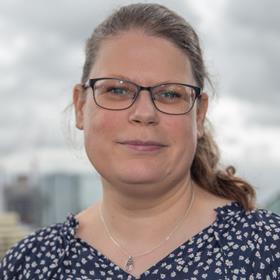In association with

An on-demand version of this webinar is available.
Virtual wards are a key part of NHS’s drive towards multidisciplinary, in-home care models. At a policy level, the emphasis until now has been on the number of virtual beds available per capita. While at a service-delivery level, integrated care systems are still working to establish how these wards can deliver the best patient outcomes.
There are several issues to contend with. Skills, staffing, and bed capacity certainly have a significant influence on success, but the design of workflows — both for the patient journey and for staffing procedures — is also critical.
Good workflows rely on robust data pipelines between organisations within the health and care system. Where patient data is lacking, staff must then piece it together, creating a significant administrative burden and negating some of the theoretical benefits of virtual wards.
One challenge, then, is improving digital workflows around virtual wards with the goal of freeing up staff and improving the transmission of care data. How can ICSs do this without adding yet more systems (and cost)? Where might this fit in with other ideas of holistic patient records? And how might we define success for virtual wards, beyond simple bed numbers?
This HSJ webinar, run in association with The Access Group, brought together a small panel to consider the answers to these important questions.
To access the recording, visit here and click play.
If you had previously registered as a viewer for the event, you will be able to view the recording immediately.
If you have not previously registered, you can do so here to get access to the recording.
Panellists

Umesh Gadhvi, chief digital and information officer, North East London Foundation Trust
Umesh Gadhvi is a seasoned professional with over 14 years of experience in the health technology sector. He plays a key role in leading the trust’s digital transformation initiatives. Among his various priorities, a prominent one is the development of a comprehensive virtual wards program. This program takes an integrated approach, fostering collaboration between various stakeholders across the healthcare and social care sectors.

Rezina Hakim, senior policy adviser, NHS Confederation
Rezina has more than10 years of experience in health policy, campaigning, and advocacy within the health and care and voluntary sector. At the NHS Confederation, she currently focuses on policy issues affecting its members and the NHS, including: digital and data transformation with a focus on virtual wards and frontline digitisation; reducing the elective backlog through use of technology and digital care; and meeting the goal of a climate sustainable NHS.

Chris Sherlaw-Johnson, senior fellow, Nuffield Trust
Chris has a background in academia, and health and social care regulation. His main area of expertise is in the use of quantitative methods to evaluate and support health services and has a particular interest in how to deliver effective quantitative approaches within rapid evaluations. He has been involved with many evaluations of health and social care services, including the transformation of outpatient services and virtual wards for people diagnosed with covid-19.

Chris Wilson, product director, integrated care, The Access Group
As a champion of seamless collaboration, data sharing, and process automation, Chris started his career in product pricing and strategy. In 2013, he co-founded Adam HTT, a commissioning and procurement software acquired by Access in 2022, which supports a multitude of trusts and health organisations around the UK. Assuming the role of product director of integrated care for Access in 2023, Chris remains dedicated to providing person-centred, frictionless solutions that support the health and social care sector.

Claire Read, webinar chair, HSJ
Claire Read is a professional writer and editor who has specialised in healthcare throughout her 20-year career. She has been a regular contributor to HSJ since 2012 and has a particular interest in healthcare digitisation and technology.

























